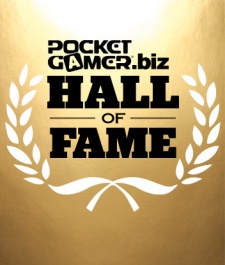Scott Foe is a PocketGamer.biz Hall of Fame-inducted game designer and producer who began his career at Sega as a member of the team that developed and launched the Sega Dreamcast - the world's first online games console.
From 2004 until around 2009, Foe was probably the highest-profile mobile game developer on the planet, serving as the final point of responsibility and authority for Sega's Pocket Kingdom: Own the World, the world's first global, massively multiplayer mobile game, and Nokia's Reset Generation, the first free-to-play game nominated for an Interactive Achievement Award.
Called "The Revolutionary" by The Escapist, Foe is sometimes known for games that are completely bizarre, and other times known for games that only seemed completely bizarre at the time.
Foe's most-recent title was Douche Defender for iPhone, which techno-magically converted your Facebook friends into douchebag barflies.
He is currently chief product officer at US start-up Unspoken Tales.
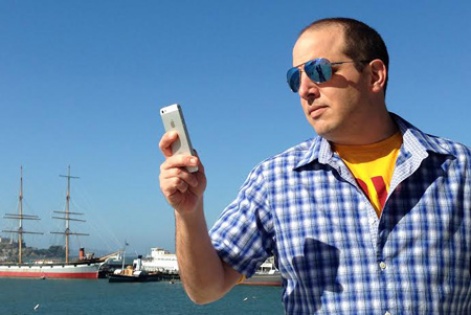
Pocket Gamer: What were your favourite games as a kid?
Scott Foe: Like most children in the late 80s, I was incurably addicted to the Nintendo Entertainment System classics, my most-loved being The Legend of Zelda.
I mean, the cartridge was gold: You knew from the moment you opened the package that you were in for a very special experience.
Then, I discovered Contra multiplayer, and, from that day forward, much to the dismay of my parents - who sometimes felt that they were responsible for boarding the entire neighborhood - my living room was never, never empty of friends playing along beside me.
I have always gravitated toward shared experiences with friends: Contra, Super Bomberman, Gain Ground, Herzog Zwei, Secret of Mana, Zombies Ate My Neighbors, Doom, Final Fantasy III - yes, it had multiplayer - and Super Mario Kart were some of the games whose soundtracks kept my parents sleepless at night.
When did you realise you wanted to make games as a career?
When I was in primary school, I was obstinate about study, which worried my parents and teachers the same: A learning specialist was brought in to tutor me, and that specialist used games as a tool for educational engagement.
I learned to read and write by playing pen and paper games such as Dungeons and Dragons and personal computer games such as Kings Quest. I learned to type with Leisure Suit Larry - a game that made my dear old mom uncomfortable. I put math into optimizing my damage in Teenage Mutant Turtles and Other Strangeness. I had to write batch scripts to get DOS games to run on my computer.
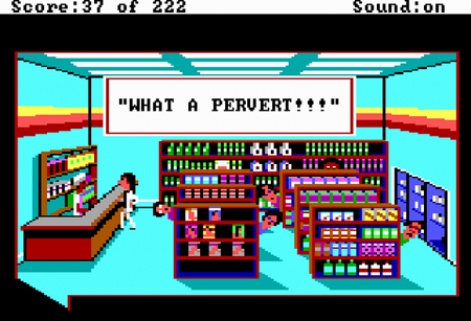
Whether building little board games out of LEGO, or tinkering around with level editors for the original Doom, game creation has always been fait accompli for me.
I haven't had the doctors take a close look, but I would guess that my blood cells are probably shaped like tetrominoes.
What was your first role in the industry? How did that turn out?
My first big gig in the games industry was as a member of the Sega Dreamcast development and launch team - the world's first online games console - as an engineer for the network-side of the Dreamcast's operating software, then codenamed "Kage."
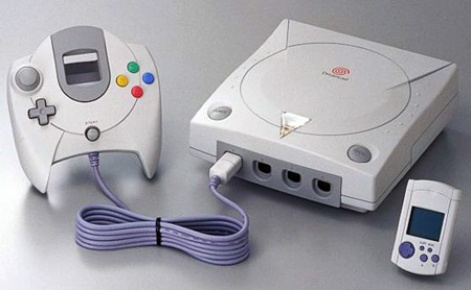
I must say that working for Sega, especially during the development and launch of a console, was an amazing experience.
From my role, I could see into games platform, publishing, and development practices and processes - a 360-degree view of the games industry. We used to joke at that time that we were at "Sega University, where you go to learn all about the games industry."
What do you consider your first significant success?
I will never forget the late Saturday evening that Kevin Kwan and I ran and jumped around the empty fifth floor of Sega's San Francisco offices, cheering and hollering in celebration for no one to hear.
Leveraging the work of the entire Kage team, we had just networked a version of Spacewar between two Dreamcasts; the online game console was playing online games.
When did the potential for mobile games become apparent to you?
At the turn of the century, Sega was one of the most-forward-looking gaming companies on the planet, and it was the vision of Sega executive Ryoichi Shiratsuchi that the battle for the living room was nothing in comparison to the coming war for the pocket.
At the turn of the century, Sega was one of the most-forward-looking gaming companies on the planet.Scott Foe
Under the direction of Shiratsuchi, Sega began to invest heavily in transitioning our Dreamcast network technologies to the mobile internet. I consider myself very fortunate to have been at Sega for not one but two connected gaming revolutions - console and mobile.
The Sega network platform, the product-side for which I was responsible, would be later sold to Nokia and would evolve to become Nokia N-Gage Arena, the first social/mobile games platform.
What do you think is the most significant event in mobile gaming to-date?
There is no question in my mind that the most significant event in mobile gaming to-date was our iPhone game, Douche Defender, which took your Facebook friends and turned them into barfly douchebags.
Giant Bomb called Douche Defender, "the most-important simulation of human drama ever played."
Okay, kidding...
I would find it hard to argue against the Apple iPhone as "the most-significant event in mobile gaming to-date," for so many reasons, all of which would be impossible for me to iterate.
If I had to identify one and only one aspect of the iPhone to laud and applaud, it would be the nearly open Apple App Store, allowing developers everywhere access to many, many consumers with little friction to distribution.
To-date, what are you most proud of?
Usually, I say that I'm most-proud of "whatever is next," and, while that is truly how I feel, I must also highlight the Interactive Achievement Award-nominated Reset Generation - which was one of the handful of titles to ever receive a perfect 10 from Pocket Gamer.
It was hard to get funding for a free-to-play game in 2005; somehow, with Reset Generation, we did it. It was hard to create seamless, real-time multiplayer between the web and mobile in 2005; somehow, with Reset Generation, we did it.
We had so many features in Reset Generation (and, actually, in Pocket Kingdom before it in 2004) that many people consider "social gaming" today. (Yes, I am directly ripping off Pocket Gamer's "most-important handheld games" article with that quote!)
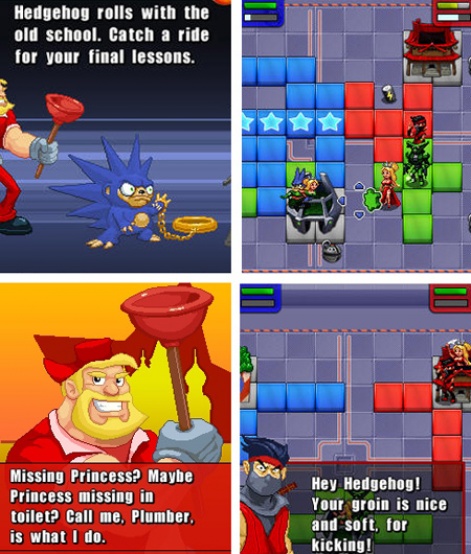
To be perfectly frank, there were so many forces inside of Nokia trying to kill the Reset Generation project, because, to be perfectly frank, the larger the organization, the more resilient to innovation.
I remember the first time that Jamil Moledina, then-director of Game Developer Conference, saw Reset Generation behind closed doors; he asked, "How did you ever achieve this level of innovation in such a large organization?"
Note to large companies: If you want to innovate from within your own walls, you must encourage entrepreneurial processes.Scott Foe
How did we achieve that level of innovation while working within an organization whose market capitalization at the time was larger than the entire games industry?
Gerard Wiener, Vice President and General Manager of Nokia Games, believed in our vision and provided one-hundred-percent support in helping us get the production flywheel turning - and he did not even blink when I pitched him, "It's going to be on the web and it's going to be free!"
Note to large companies: If you want to innovate from within your own walls, you must encourage entrepreneurial processes and practices within your teams and then provide absolute shelter from so-called friendly organizational fire.
I cannot stress how proud I am that not only was Reset Generation released a critical smash, Reset Generation was also the most-played N-Gage game in history by a wide, wide margin. The cynical among you might say that being the best N-Gage game is like winning a gold medal at a turd-eating contest and, hey, a gold medal is a gold medal!
Any regrets?
My biggest regret is that every last one of the intellectual properties that I have worked on have found their ways into seemingly untouchable elephant's graveyards: The world will probably never again see Pocket Kingdom, the first global, massively multiplayer mobile game.
I'll probably never again be able to show people Reset Generation, the first free-to-play game nominated for an Interactive Achievement Award. And we'll never again get to play Douche Defender, the first (and only) iPhone game that turned your Facebook friends into douchebags.
In this industry, your games are your name, and I can't say that any one title that I have produced and/or designed is still available to play today.
There was a five-or-so year span where I was probably the highest-profile mobile game developer in the world and now you can't play even one of those titles that had EDGE Magazine listing me alongside the likes of Valve's Gabe Newell as a person who would forever change the face of the games industry.
Which mobile games have you most enjoyed recently and why?
My two favorite mobile games at the moment are Scribblenauts Remix and Nimble Quest.
Scribblenauts, I love on account of the gameplay dynamics leading you to feel that absolutely anything is truly possible - a rare achievement in any game on any platform. Try typing "Laser Sword" into Scribblenauts sometime; one law of mobile design is that every good mobile game needs laser swords.
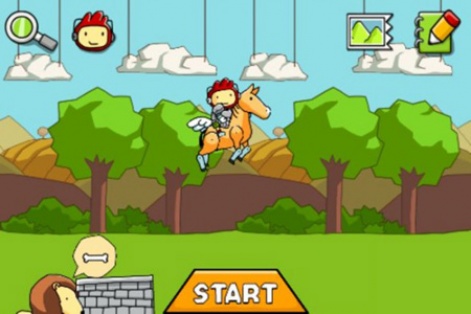
As for Nimble Quest, well, they took one of the most-well understood and most-successful mobile gameplay dynamics on the planet, Nokia Snake, and totally dorked it out with Dungeons & Dragons-style.
I love a fractured fairytale, and, one law of mobile design is that every good mobile game needs wizards.
Also, any game featuring some sort of avian creature is generally okay by me; one law of mobile design is that you can never have too many birds.
What are your predictions for the new big development in mobile games?
One big advance in mobile gaming would be ubiquitous, low-latency, high-bandwidth networking - as opposed to the unpredictable latencies that we generally experience with mobile internet weather conditions today.
Gameplay that relies on tight, thirty-to-ninety-second loops in an always available, low-latency, high-bandwidth network environment is going to be new and fertile territory sometime in the future.
Also, could we please get some never-die batteries? It's the year 2014, people!
In which area of the industry do you hope to make a difference in future?
In the short-term, I am focusing on tablet, which is different than mobile in that the play sessions are longer, displays are bigger, and low-latency, high-bandwidth networking (Wi-Fi) is more prevalent. A great tablet game might not always make for a great mobile game, and woe will be to those who see the two platforms as interchangeable.
I would like to say that I am so very, deeply honored by Pocket Gamer inducting me into the Hall of Fame and, when one is handed a lifetime achievement award, it might just mean that one's lifetime is over!
So, in the long-term, my focus is on non-perishable, infinitely replayable games. Before I clock out, I would like to help bring into the world at least one game which people will still be playing fifteen years from release.
Remember, industry brothers and sisters, you can't take it with you, but you can leave it behind.
Starting out in simple monochrome in the days of Snake and WAP, the past decade has seen the mobile games industry kaleidoscope into a glorious, multi-billion dollar sector that's driving global innovation.
So it's high time we celebrate some of the people who helped make that journey possible - something PocketGamer.biz will be doing in its regular Hall of Fame interviews.
You can read our previous articles here.

